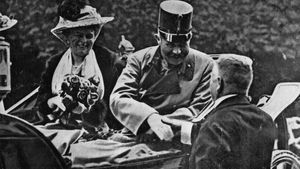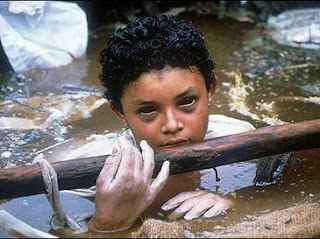World War I 1914–1918
World War I, also called First World War or Great War, an international conflict that in 1914–18 embroiled most of the nations of Europe along with Russia, the United States, the Middle East, and other regions. The war pitted the Central Powers—mainly Germany, Austria-Hungary, and Turkey—against the Allies—mainly France, Great Britain, Russia, Italy, Japan, and, from 1917, the United States. It ended with the defeat of the Central Powers. The war was virtually unprecedented in the slaughter, carnage, and destruction it caused.
World War I was one of the great watersheds of 20th-century geopolitical history. It led to the fall of four great imperial dynasties (in Germany, Russia, Austria-Hungary, and Turkey), resulted in the Bolshevik Revolution in Russia, and, in its destabilization of European society, laid the groundwork for World War II.
The last surviving veterans of World War I were American serviceman Frank Buckles (died in February 2011), British-born Australian serviceman Claude Choules (died in May 2011), and British servicewoman Florence Green (died in February 2012), the last surviving veteran of the war.
The outbreak of war
With Serbia already much aggrandized by the two Balkan Wars (1912–13, 1913), Serbian nationalists turned their attention back to the idea of “liberating” the South Slavs of Austria-Hungary. Colonel Dragutin Dimitrijević, head of Serbia’s military intelligence, was also, under the alias “Apis,” head of the secret society Union or Death, pledged to the pursuit of this pan-Serbian ambition. Believing that the Serbs’ cause would be served by the death of the Austrian archduke Franz Ferdinand, heir presumptive to the Austrian emperor Franz Joseph, and learning that the Archduke was about to visit Bosnia on a tour of military inspection, Apis plotted his assassination. Nikola Pašić, the Serbian prime minister and an enemy of Apis, heard of the plot and warned the Austrian government of it, but his message was too cautiously worded to be understood.
At 11:15 AM on June 28, 1914, in the Bosnian capital, Sarajevo, Franz Ferdinand and his morganatic wife, Sophie, duchess of Hohenberg, were shot dead by a Bosnian Serb, Gavrilo Princip. The chief of the Austro-Hungarian general staff, Franz, Graf (count) Conrad von Hötzendorf, and the foreign minister, Leopold, Graf von Berchtold, saw the crime as the occasion for measures to humiliate Serbia and so to enhance Austria-Hungary’s prestige in the Balkans. Conrad had already (October 1913) been assured by William II of Germany’s support if Austria-Hungary should start a preventive war against Serbia. This assurance was confirmed in the week following the assassination, before William, on July 6, set off upon his annual cruise to the North Cape, off Norway.
The Austrians decided to present an unacceptable ultimatum to Serbia and then to declare war, relying on Germany to deter Russia from intervention. Though the terms of the ultimatum were finally approved on July 19, its delivery was postponed to the evening of July 23, since by that time the French president, Raymond Poincaré, and his premier, René Viviani, who had set off on a state visit to Russia on July 15, would be on their way home and therefore unable to concert an immediate reaction with their Russian allies. When the delivery was announced, on July 24, Russia declared that Austria-Hungary must not be allowed to crush Serbia.
Thanks for reading....





Comments
Post a Comment